Adopting the correct wheelie bin etiquette is a key part of keeping your neighbours happy and the local area tidy. Sadly, many residents cause a divide in their street by disobeying the rules or simply having no awareness of them.
We’ve unpacked some home truths and dispelled a few myths in this guide to help enlist yourself as a bin-friendly neighbour and ensure you don’t fall foul of the rules.
Can I put rubbish in my neighbour’s bin?
You’ve had a couple of heavy nights. Your bin is brimming with empty bottles and party food packaging. The only space remaining is to pile waste on top of the bin lid, before you notice your neighbour’s bin is only half full. The temptation to slyly shove the excess litter in their bin can be overwhelming.
If the bin is on their property, the answer is always a resounding no, you cannot put rubbish in your neighbour’s bin. Not only are you using a bin that’s intended for their personal use, but you'd also be technically trespassing.
If the bin is out on the street ready for collection and looks empty, it’s still morally best practice to knock on your neighbour’s door and ask for permission. Explain the situation and if they give you the go-ahead, you can dispose of your rubbish with a clear conscience. Of course, if they say no, you’ll need to respect their decision and think of another solution.
Conversely, if the shoe is on the other foot and your neighbour has an overflowing rubbish bin, suggest for them to use your bin if there’s enough space. Not only will the area look tidier, but it will also prevent scavenging insects, vermin, and other wildlife gorging themselves on overflowing remnants. If you take the time to help them out, they’re more likely to return the favour in the future.
Can I move my neighbour’s bin?
When you’re wheeling your bin back to your house, do you ignore the fact that your neighbour’s bin is still in situ? A gesture of goodwill goes a long way, so it’s good wheelie bin etiquette to wheel it back to the front of their property, at least. If they’re elderly or work away a lot, they’ll appreciate it even more.
Bins left outside on the street can also block pavements, prevent the safe parking of vehicles, and can even be hazardous to drivers if the bin is blown over and its contents spill into the road.
How do I deal with an overflowing bin?
Overfilling your bin will mean the lid won’t close properly, allowing nasty odours to escape and attract troublesome pests. Instead, store any excess waste in a sturdy bin liner ready for the next collection date. If you have something lying around that’s likely to smell, like a chicken carcass, double bag it.
If an overflowing rubbish bin is a regular occurrence, look at ways to reduce what you throw away or consider investing in additional and/or bigger bins. Most councils will happily supply you with an additional recycling bin free of charge, as you’re helping save the environment.
When do I put my bins out?
Most councils ask that you don’t put your bin out before early evening (around 7pm) the night before your collection, and no later than 6:30/7am on the collection day. Check your local council website for specific times.
Dragging your bin out can be noisy, so stay in favour with your neighbours by avoiding putting your bins out late at night or ridiculously early in the morning.
Be mindful that in some places, putting your bin at the kerbside when it's not pick-up day counts as fly-tipping.
Where do I put my bins for collection?
Put your bin on the edge of your property boundary so it can easily be seen from the road. Dependent on the location and type of property, the collection point will likely be the kerbside or a designated communal area. Always be mindful about obstructing pavements, bus stops, driveways, etc.
In some cases, it’s impossible not to block pavement access, so try and take it back to your property as soon as possible after it's been emptied. This will also reduce the risk of your bin being stolen or damaged.
Wheel your bin to the collection point with the handles facing the road and ideally close to your neighbour’s bin. This helps to maximise refuse collection efficiency. Finally, make sure your bin lid is firmly shut and all waste is inside the bin.. Don’t leave any extra waste (bagged or unbagged) at the kerbside for collection.
Where should I keep my wheelie bin?
Bins (even those that are properly closed) can be smelly, so keep them at the side or rear of your house to avoid kicking up a stink along the road.
Try to keep your wheelie bin out of direct sunlight, as the sun will warm up the bin and heighten the smell, attracting flies and wasps. Make sure your rubbish, in particular food waste, is contained in large, durable bin liners, before placing it in your wheelie bin to avoid bad odours leaking out.
This is why it’s both important and excellent bin etiquette to keep your wheelie bin smelling fresh.
My wheelie bin has gone missing - what do I do?
It’s always a good idea to display your house number on your wheelie bin, but that can’t always avert the unfortunate circumstances of your bin going missing or, in the worst case, stolen. If your bin goes missing, be sure to check the surrounding vicinity and neighbouring properties to see if it’s accidentally ended up there.
Once you’ve established your bin has gone missing, you need to report it to your local council immediately who can then source replacement wheelie bins. Be aware that you’re likely to incur an admin charge, and delivery times can differ wildly depending on the current demand.
If you suspect someone has unlawfully taken your bin, you should contact the police to obtain a crime reference number. You’ll also need to get in touch with your local council to notify them of their missing property, and so the wheelie bin replacement process can begin rolling.
Remember, two rights don’t make a wrong, so don’t go and take someone else’s in the meantime. If you need a replacement as a matter of urgency, look for a domestic wheelie bin provider with a fast delivery time.
When it comes to bin etiquette, the golden rule is to recognise that disposing of rubbish should be done with the utmost courtesy towards your neighbours and people who walk past your property. Take the time to familiarise yourself with your council’s rules about collection days, excess waste, and what can be recycled, so together you and your community can do your bit for the environment.








Craig Pryce
With over 17 years of experience in the waste and recycling industry, Craig is passionate about making recycling easier and reducing the negative impact of litter. He has been the managing director of Wheelie Bin Solutions (WBS) since January 2016, and prides the company on his expert knowledge, top-quality products, and customer service. His proudest moment was when WBS supported the 2012 Olympic Games, working in partnership with Contenur UK to supply over 9000 bin containers to all Olympic venues. Craig is always keen to share his knowledge, so whether you need advice about the benefits of a wheelie bin lock, or ideas for alternative uses for your wheelie bin, Craig will ensure your recycling and waste disposal habits are gold medal worthy.